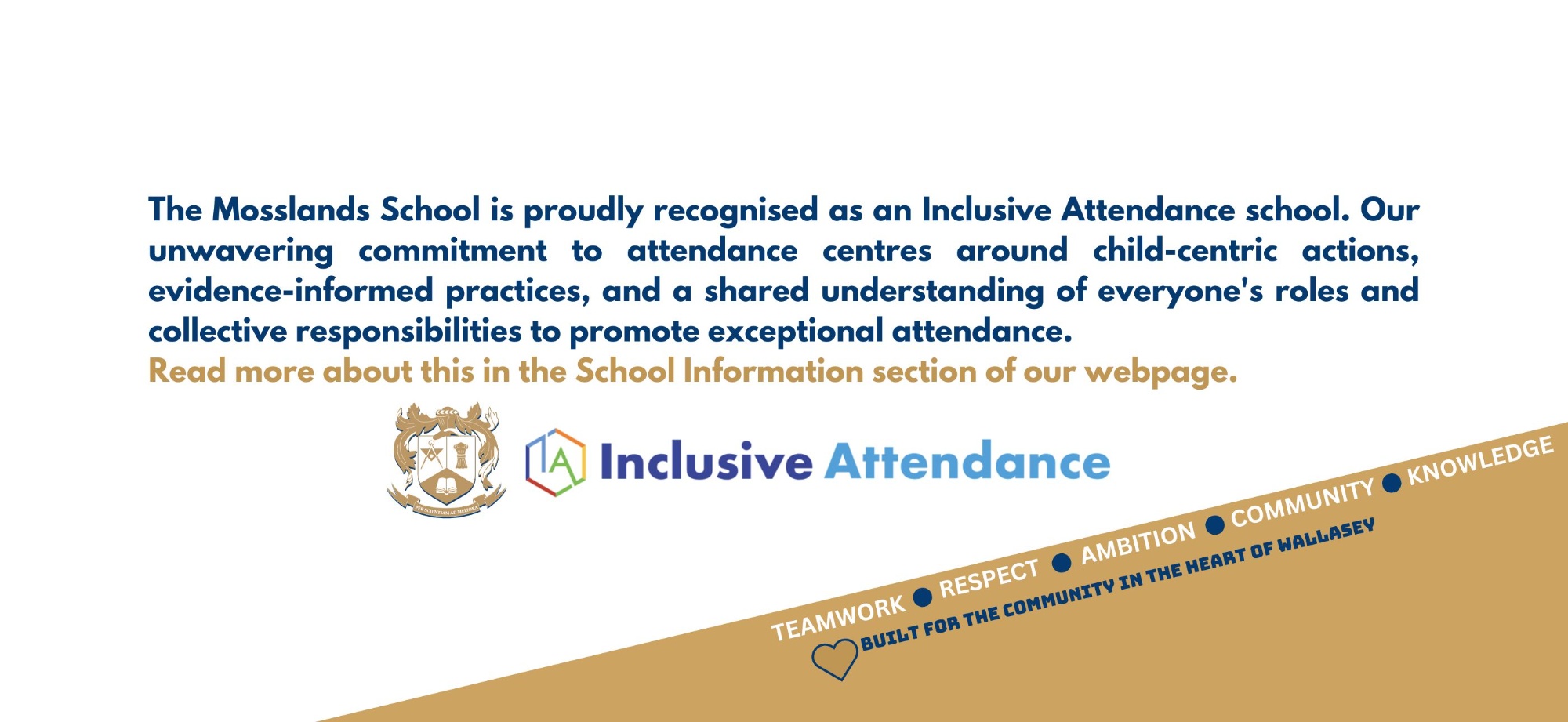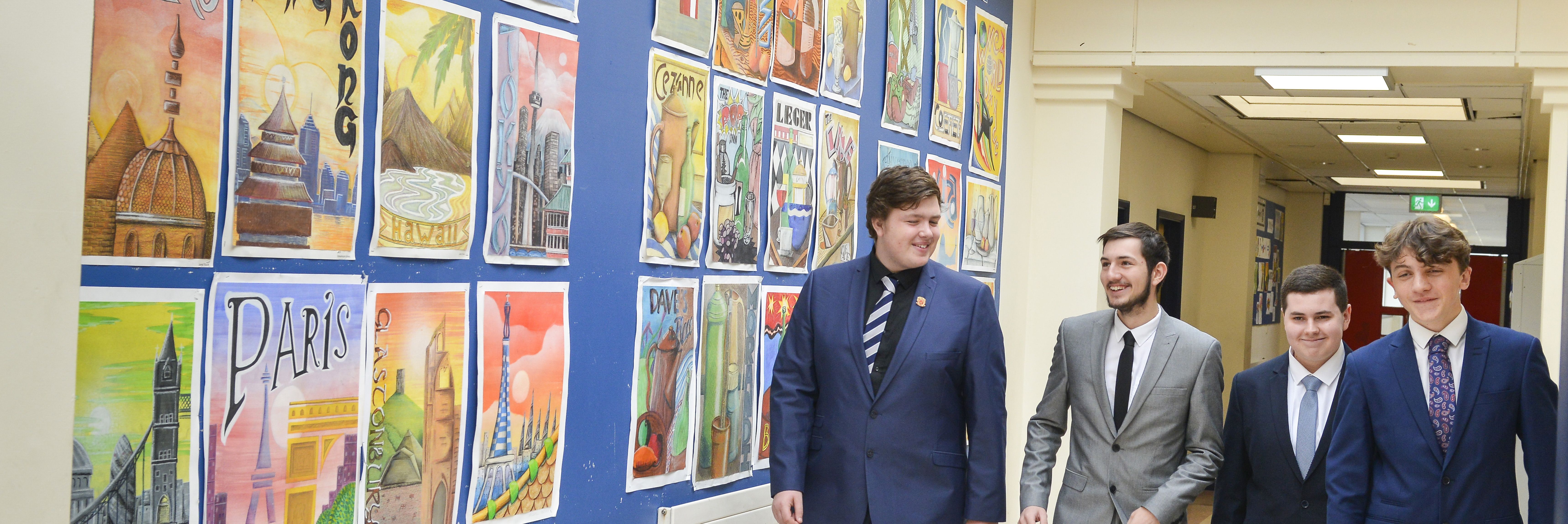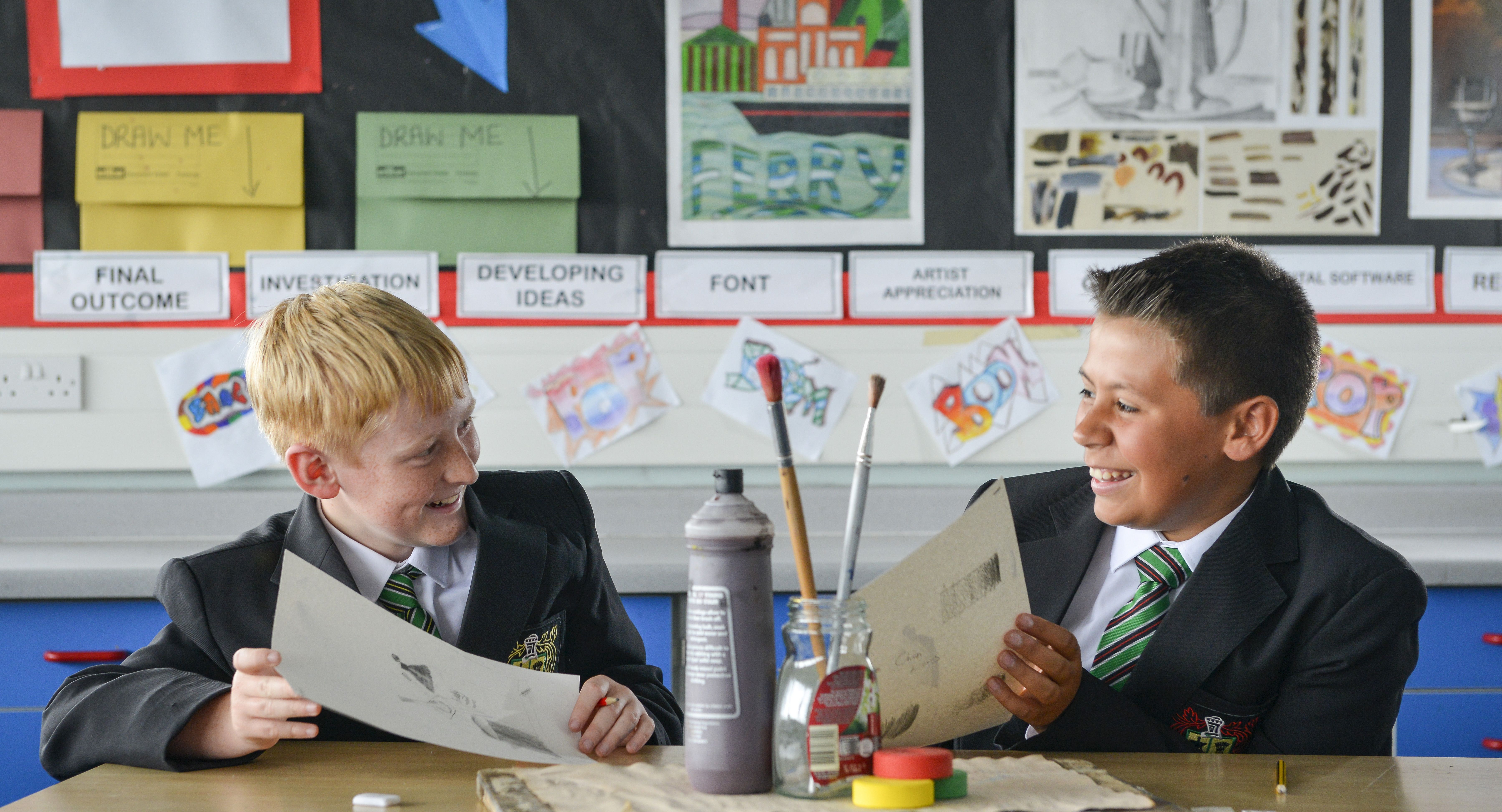Philosophy & Religious Studies
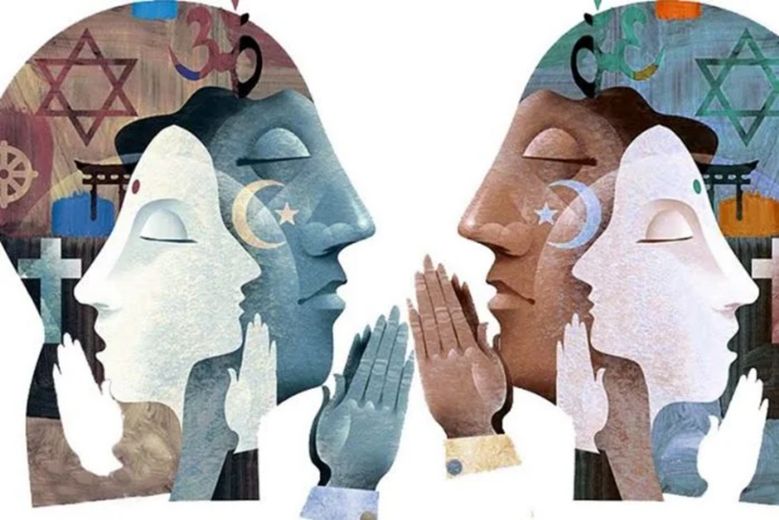
In year 7, students will learn about different attempts at answering the question ‘How did we get here?’, from non-religious scientific explanations to various religious accounts of creation. Students will study the beliefs, history, global, national and local influence of Christianity, alongside the origins and key teachings of Buddhism such as the Three Universal Truths, the Five Precepts, and practices like meditation and almsgiving.
In year 8, students will learn about the perceived nature of God, including divine attributes, concepts such as monotheism, polytheism and deism, and reasons why people may or may not believe in God. Students will explore key philosophical arguments for and against God’s existence and will evaluate and debate these arguments. Students will study beliefs about life after death from Christian, Buddhist and non-religious perspectives, considering links with karma, reincarnation, enlightenment, actions and the afterlife. The final unit of year 8 is study of the origins, history and practices of Judaism, including Abraham, Moses, the Torah, differences between Orthodox and Reform traditions, and festivals such as Hanukkah and Passover.
In year 9, students will learn about equality and justice in society through the Prejudice and Discrimination unit. Students will study hate crimes such as the murder of Anthony Walker and Stephen Lawrence and the impact and legacy of these murders. Students will examine how prejudice affects areas like football, the consequences of gender stereotypes, and how Christian teachings link forgiveness and equality to activism. Students will then explore different views on the Problem of Evil, including its challenges to belief in God, religious responses, and the nature and causes of evil, using case studies to consider the role of upbringing, environment, and free will. The final unit of year 9 is a study into the ethics of war including: causes and types of war, international agreements like the Geneva Conventions and NATO, Just War Theory, and examples of pacifism and non-violent resistance such as Desmond Doss and Sophie Scholl.
At Key Stage 4, students can opt to take the Eduqas Religious Studies Course which aims to:
- Develops learners’ knowledge and understanding of Christianity, Buddhism and non-religious beliefs, such as atheism and humanism
- Develops learners’ knowledge and understanding of these religious beliefs, teachings, practices, and sources of wisdom and authority, including through their reading of key Christian and Buddhist texts
- Develops learners’ ability to construct well-argued, well-informed, balanced and structured written arguments, demonstrating their depth and breadth of understanding of the subject
- Provides opportunities for learners to engage with questions of belief, value, meaning, purpose, truth, and their influence on human life
- Challenges learners to reflect on and develop their own values, beliefs and attitudes in the light of what they have learnt and contributes to their preparation for adult life in a pluralistic society and global community
- Themes covered include: Christianity, Buddhism, Issues of relationships, issues of good and evil, issues of life and death and issues of human rights
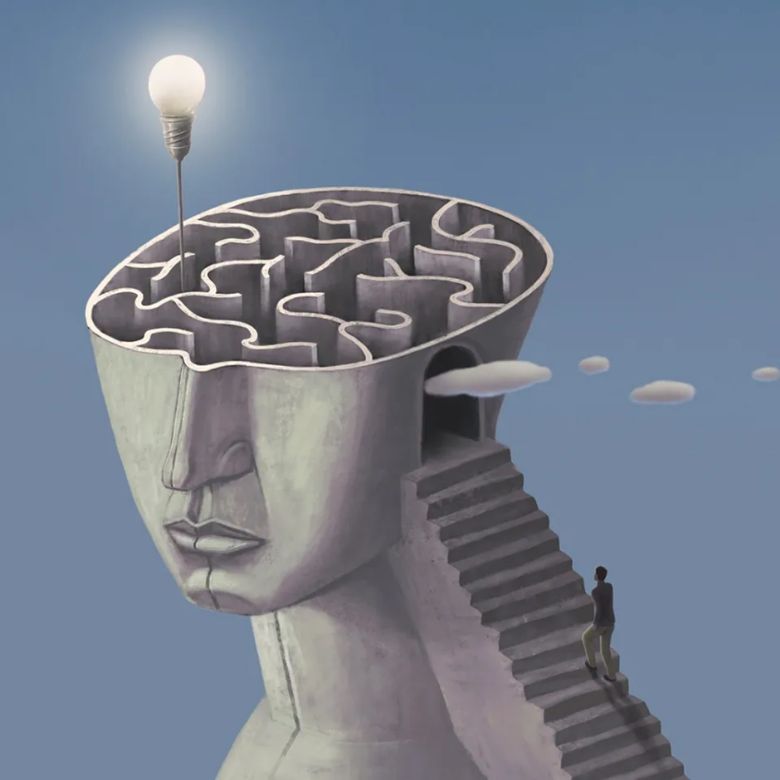
A qualification in Philosophy and Religious Studies develops valuable skills such as critical thinking, ethical reasoning, cultural awareness, debate, analysis, and clear communication. These are highly transferable, meaning students can pursue a wide range of careers. Some common pathways include:
- Education – Teaching in schools or further education, educational policy, or academic research.
- Law and Politics – Roles such as solicitor, barrister, civil service, political advisor, or working in government and human rights.
- Counselling and Social Work – Careers in mental health support, community work, chaplaincy, youth work, or charity/NGO sectors.
- Media and Journalism – Writing, broadcasting, or working in publishing, especially where ethical or cultural issues are central.
- Business and Management – Roles in HR, leadership, corporate responsibility, or areas that require negotiation and understanding of diverse perspectives.
- Religious and Interfaith Roles – Ministry, chaplaincy, interfaith dialogue, and community leadership.




